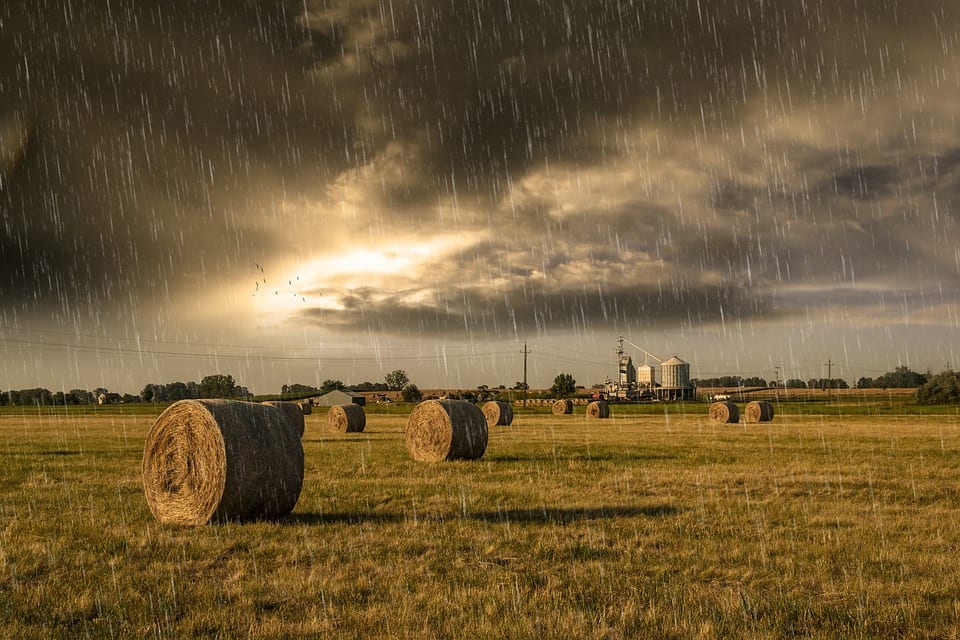Trade wars, tariffs, regulations, and mandates: Is Trump keeping his campaign promises to farm country?
Farmers had several reasons to vote for Trump in 2016. Some good, some that had a whiff of “fresh country air” to them, but all of which made sense to farmers when they pulled the lever rightward. Looking back, how has that worked out for Americans in farm country, and for the rest of us? Will farmers vote Republican in 2020 and continue to support the Republican agenda, or have they had enough?
A 2016 retrospective listed a handful of reasons that American farmers fell in line for the President. One major issue, hardly considered outside of farm country, is the Waters of the United States rule. This bit of the Clean Water Act attempted to prevent the pollution of streams and rivers at the source, by regulating fertilizer and silt runoff from farms. Trump shrewdly emphasized the issue during the election, playing up farmers’ fears of government overreach and uncertainty over how the rule affected occasionally-present surface water, like dips in fields, that left farmers afraid of accidental violations.
In September, the EPA announced the repeal of the Waters of the United States rule, a move that the agency claims provides “regulatory certainty” by reverting to the varied patchwork of regulations by state, local, and tribal governments that existed prior to the adoption of the single federal rule in 2015 by the Obama administration. Isn’t that an astounding piece of doubletalk? Additionally, it means that farmers have more of a free pass to pollute waterways and thereby externalize cleanup costs and health risks to the public. Expensive for us, but sure to gain votes for Trump in farm country.
Another concern cited in 2016 was the Renewable Fuel Standard, a law passed by George W. Bush. Biofuels were a hippie dream until farmers realized they could capitalize on a federal regulation requiring fuel refiners to purchase ethanol made from American corn to add to the standard fuel mix. During the 2016 campaign, Trump sucked up to farm country by suggesting that the fuel ethanol percentage should be increased, and made false claims that President Obama had “imposed radical restrictions on our farmers and ethanol production.”
Once in office, Trump’s love for “clean, affordable, American ethanol” temporarily disappeared. Farmers, locked into a cycle of overproduction due to low commodity prices, depend on the ethanol industry to soak up 40% of their crop, but that expense can be onerous for refineries when oil is cheap. Since early 2018, the EPA has granted at least 86 hardship waivers to small refineries who claim that the ethanol mandate is driving them out of business. This didn’t go over well in farm country. In a recent detail-free tweet, Trump claimed that he has a solution that will please both Big Ag and Big Oil. His “giant package,” however, is disappointing: it mostly foists the mandate off the smaller refineries onto the large refineries, while insuring that gas stations are able to sell the blend. This also comes after a disastrous season that saw farmers unable to plant, when the U.S. has turned to importing Brazilian corn as the Amazon burns.
The Farmers are going to be so happy when they see what we are doing for Ethanol, not even including the E-15, year around, which is already done. It will be a giant package, get ready! At the same time I was able to save the small refineries from certain closing. Great for all!
— Donald J. Trump (@realDonaldTrump) August 29, 2019
Worth noting, too, is the wastefulness of devoting such a large chunk of farm country to the production of motor fuel. It takes nearly as much energy to grow, process, and refine corn ethanol as it produces when burned in a car’s engine. The closer the ratio gets to 1:1, the more useless an energy source becomes as a way to power modern industrial culture.
Finally, the main factor driving farm country’s current and growing disdain for the Trump administration is the trade war. Chinese tariffs on American agricultural products have led to huge financial losses for American farmers. Farmers might be willing to be patriotic and take a hit for the good of the country (or to support changes that allow future generations to keep farming the same land), but most are unwilling to be martyrs. Bob Kuylen, the vice president of the North Dakota Farmer’s Union, claims to have personally lost $400,000 as a result of the trade war.
Dairy farmers are also in trouble, and Ag Secretary Sonny Purdue straight up said that in America, “the big get bigger and the small go out.” Adding insult to injury, Purdue continued, “I don’t think in America we, for any small business, we have a guaranteed income or guaranteed profitability.” That may be true, but it’s unusual to hear such unvarnished plain talk about the way the United States so often sacrifices small farmers on the altar of monopolist capitalism. Wisconsin dairy farmer Jerry Volenec, quoted by Successful Farming magazine, laments, “What I heard today from the secretary of agriculture was there’s no place for me.” One hopes that people in farm country will remember this come 2020, and vote accordingly.
“Liquidate labor, liquidate stocks, liquidate the farmers, liquidate real estate. It will purge the rottenness out of the system. High costs of living and high living will come down. People will work harder, live a more moral life. Values will be adjusted, and enterprising people will pick up the wrecks from less competent people.” –Andrew Mellon, as quoted by Herbert Hoover
Related: Corn, Water, & Big Ag’s Immunity Problem


Join the conversation!